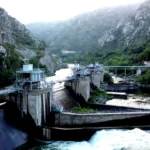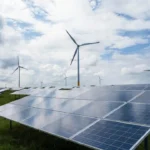Energy planning is a strategic process pivotal in shaping the future of energy production, distribution, and consumption. Effective energy planning is crucial in a world where energy resources are finite and environmental concerns are paramount. This comprehensive exploration delves into energy planning, uncovering its significance, applications across various sectors, and its transformative potential for creating a more sustainable and resilient energy landscape.
The Significance of Energy Planning
Energy planning represents a fundamental shift in how we approach energy management and sustainability. It provides governments, organizations, and individuals with the tools and strategies to make informed energy production, distribution, and consumption decisions. This shift towards advanced technology carries substantial implications, from reducing greenhouse gas emissions to enhancing energy security and economic competitiveness.
Sustainability
One of the primary benefits of energy planning is the advancement of sustainability. Sustainable aims to reduce the environmental impact of energy production and consumption. It includes transitioning to renewable energy sources, implementing energy-efficient technologies, and optimizing energy systems to minimize waste and emissions. Sustainability-focused energy planning aligns with global efforts to mitigate climate change, preserve natural resources, and create a more eco-friendly future.
Energy Security
Energy planning also plays a pivotal role in enhancing energy security. Countries and regions can reduce their dependence on a single energy provider or fossil fuels by diversifying energy sources and supply routes. Robust strategies include the development of domestic energy sources, investment in energy storage technologies, and the creation of resilient energy infrastructures that can withstand disruptions, such as natural disasters or cyberattacks.
Economic Competitiveness
Efficient energy planning can significantly impact economic competitiveness. Businesses and industries can enhance their competitiveness in the global market by reducing energy costs and improving energy productivity. Energy-efficient practices, such as industrial process optimization and building energy management, reduce operational expenses and position companies as leaders in sustainability, appealing to environmentally conscious consumers and investors.
Techniques in Energy Planning
Energy planning encompasses a variety of techniques and methodologies to guide the sustainable and efficient management of energy resources.
Integrated Resource Planning (IRP)
Integrated Resource Planning (IRP) is a comprehensive approach to energy planning that evaluates a wide range of supply and demand-side resources. It considers various energy sources, including fossil fuels, renewables, and nuclear, and energy efficiency measures. IRP models help identify the most cost-effective and sustainable mix of resources to meet energy demand while minimizing environmental impact.
Demand-side management (DSM)
Demand-side management (DSM) optimizes energy consumption by encouraging more efficient energy use among consumers and businesses. DSM programs include energy audits, appliance standards, and demand response initiatives. It incorporates DSM aims to reduce peak demand, lower energy bills, and enhance grid stability.
Renewable Energy Integration
Renewable energy integration is a key component of sustainable energy planning. It involves adopting renewable energy sources, such as solar, wind, and hydroelectric power, into the energy mix. Energy planners assess the potential for renewable energy generation and develop strategies to integrate these sources into the grid, balancing intermittency with energy storage solutions and grid upgrades.
Applications of Energy Planning
Energy planning finds applications across diverse sectors, each reaping the rewards of sustainable energy management and resilience.
National Energy Policies
Governments formulate national energy policies that guide energy planning efforts. These policies set targets for renewable energy adoption, emissions reduction, and energy efficiency. They also establish regulatory frameworks and incentives to promote sustainable energy practices, driving innovation and investment in the energy sector.
Industrial and Manufacturing
Industries and manufacturing sectors benefit significantly from energy planning. Energy-efficient technologies, process optimization, and sustainable supply chains are integral to the industry. Industries enhance their environmental stewardship and operational efficiency by reducing energy consumption and emissions.
Transportation and Infrastructure
Transportation and infrastructure planning incorporate energy-efficient and sustainable practices. It includes the development of electric vehicle charging infrastructure, the promotion of public transportation, and the integrating of smart city technologies to optimize energy use in urban environments.
Challenges and Ethical Considerations
While energy planning holds immense promise, it also presents challenges and ethical considerations requiring careful attention.
Environmental Impact
It must consider the environmental impact of energy production and consumption. Ethical considerations involve minimizing ecosystem harm, reducing greenhouse gas emissions, and ensuring that energy projects adhere to environmental regulations. Sustainable energy planning should prioritize technologies and practices that minimize habitat disruption and contribute to biodiversity preservation.
Energy Access and Equity
Ensuring equitable access to the benefits of energy planning is essential. Ethical considerations include addressing energy poverty and providing underserved communities access to clean and affordable energy. Its initiatives should prioritize projects that benefit marginalized populations and contribute to social equity.
Energy Transition and Just Transition
As energy planning transitions from fossil fuels to renewables, ethical considerations include supporting a just transition for workers and communities heavily reliant on the fossil fuel industry. Ethical strategies involve retraining, providing alternative employment opportunities for affected workers, and investing in community development to mitigate economic disparities.
The Future of Energy Planning
Energy planning is poised to assume an even more substantial role in shaping the future of energy management, fostering sustainability, resilience, and economic prosperity.
Decentralized Energy Systems
The rise of decentralized energy systems, including distributed generation and microgrids, will transform energy planning. Decentralized systems enable communities and businesses to generate renewable energy, reducing reliance on centralized utilities. It will incorporate integrating these systems, optimizing energy flows, and enhancing grid resilience.
Artificial Intelligence and Predictive Analytics
Integrating artificial intelligence (AI) and predictive analytics will elevate energy planning capabilities. AI-driven algorithms can analyze vast datasets to identify energy-saving opportunities, predict demand patterns, and optimize energy distribution in real-time. Energy planners will harness these technologies to make data-driven decisions that enhance efficiency and sustainability.
Electrification and Decarbonization
The increasing electrification of transportation, heating, and industrial processes will play a critical role in balancing energy demand, optimizing charging schedules, and minimizing carbon emissions. Energy planners will develop strategies to support the widespread adoption of electric vehicles, electrified heating systems, and green hydrogen production, contributing to decarbonization efforts.
Conclusion
Energy planning is not just about managing energy resources; it is about shaping a sustainable and resilient energy future. Its significance lies in its capacity to reduce environmental impact, enhance energy security, and drive economic competitiveness. Ethical considerations, environmental responsibility, and equitable access must guide its development and implementation as it continues to evolve.
They envision a future where energy is harnessed efficiently, sustainability is prioritized, and energy access is a universal right. It is the key to unlocking new possibilities in energy management—one kilowatt-hour at a time. With energy planning, we can create a future where energy is clean, reliable, and accessible to all, driving progress and prosperity for generations to come.





